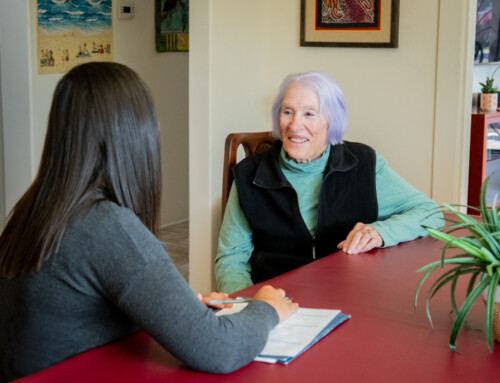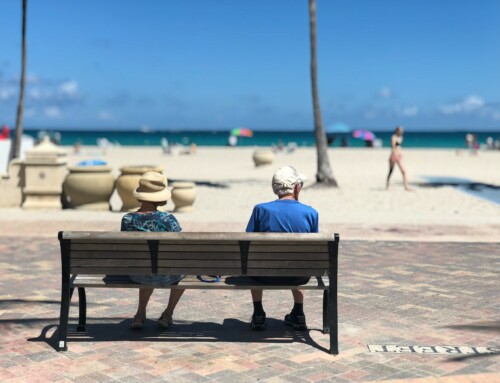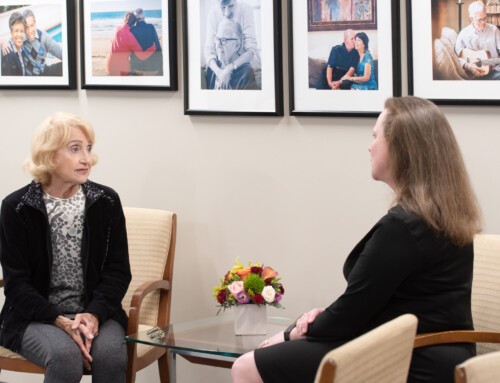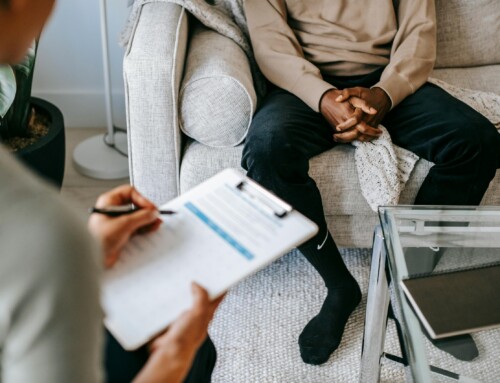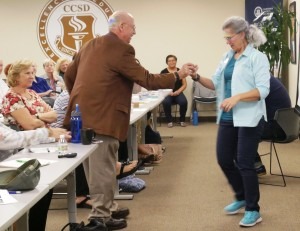 There’s no one quite like Teepa.
There’s no one quite like Teepa.
On Monday, January 29th, more than 200 families came to Alzheimer’s San Diego for the rare opportunity to attend a workshop with renowned dementia educator Teepa Snow. It’s not easy to live with or care for someone with dementia, and Teepa didn’t shy away from those tough truths. Instead, she explained how the brain is changed by the disease, gave practical examples and challenged people to look at things a little differently.
“People with dementia are doing the best they can,” Teepa explained. “They can’t adapt – so we have to as caregivers.”
The key takeaways centered around Teepa’s Positive Approach® to Care, and seeing daily challenges from the person with dementia’s point of view. For example – a common brain change caused by dementia is a narrower field of vision. Teepa explained how approaching someone with the disease from the side could be a scary experience for them, and offered suggestions on how to safely and comfortably enter someone’s personal space. Another common brain change results in walking with more weight on the balls of the feet, causing unsteadiness and falls. Caregivers can join the person with dementia in a supportive stance and use rhythm while they walk to help keep them balanced and moving forward.
RELATED | ALZSD adopts Teepa Snow’s “Positive Approach to Care”
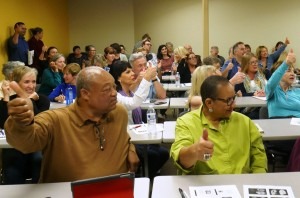 She demonstrated this using her hand-under-hand method. In addition to supporting someone while walking together, this method can be utilized to help someone with dementia complete everyday activities like eating, brushing their teeth and more. Rather than try to come at someone with a toothbrush or forkful of food, she recommended caregivers put the tool in the hand of the person living with dementia, and then use their own hand to help guide it. From there, muscle memory can make the process easier.
She demonstrated this using her hand-under-hand method. In addition to supporting someone while walking together, this method can be utilized to help someone with dementia complete everyday activities like eating, brushing their teeth and more. Rather than try to come at someone with a toothbrush or forkful of food, she recommended caregivers put the tool in the hand of the person living with dementia, and then use their own hand to help guide it. From there, muscle memory can make the process easier.
“Usually, Teepa trains residential care workers. To have her here, holding a workshop for families in the trenches dealing with dementia, is so special,” said Amy Abrams, Education & Outreach Manager for Alzheimer’s San Diego. “We try to incorporate the Positive Approach™ in all of our classes, and it was an honor to have Teepa herself demonstrate it.”
RELATED | Sign up for our free education classes
Teepa also discussed best practices for communicating with people with dementia: keep information short and sweet, offer concrete choices and break down tasks into simple, single steps at a time. Another tactic is to use visual cues combined with verbal asks, such as gesturing and pointing, to get the message across. Finally, she emphasized that care partners need to understand that the disease – not the person – is responsible for changes in behavior and abilities, and they shouldn’t react to symptoms with fear or frustration.
“One of the things that makes this disease so difficult is that it’s constantly changing,” Teepa said. “One moment, someone may be your husband. Ten minutes later, he might not recognize you. It’s hard. But it’s not his fault.”
Are you caring for someone with dementia? Do you need some support? Give us a call at 858.492.4400 to speak with one of our dementia experts. We’re here to help!

